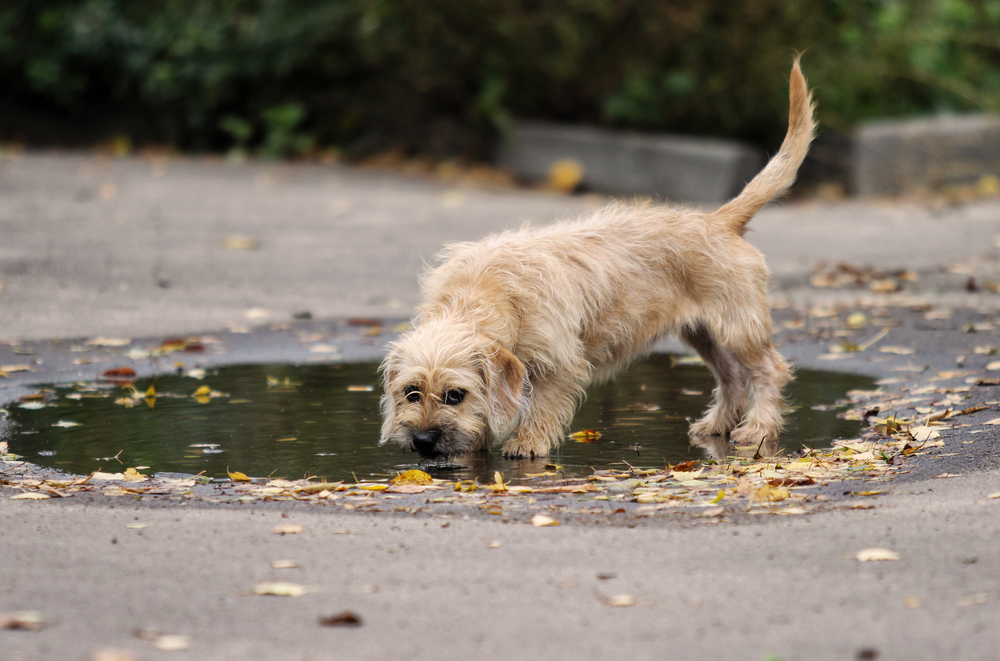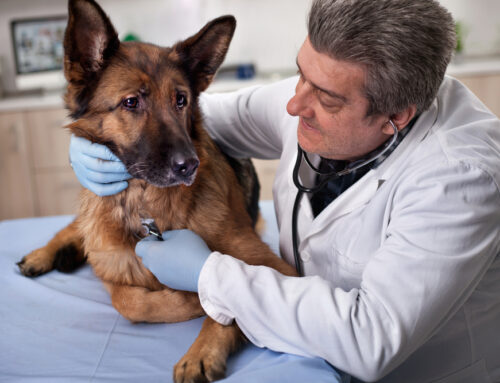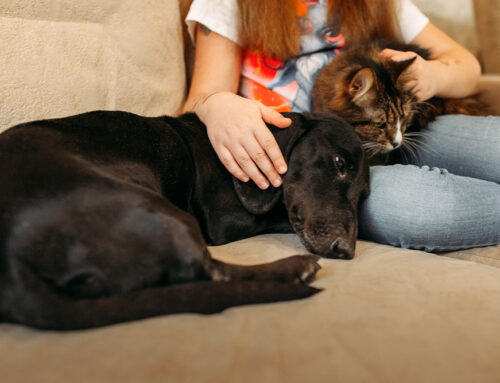Welcoming a new puppy into your family is an exciting and joyous occasion. However, along with all the cuddles and playtime, prioritizing your pup’s health is crucial, and you must ensure they receive necessary vaccinations. Vaccines play a vital role in preventing various diseases and infections, establishing the foundation for your furry friend’s healthy and happy life. Vaccines also protect people from zoonotic diseases, such as rabies and leptospirosis, that can be transmitted from pets to people.
Because of Guam’s large population of stray dogs, infectious canine diseases easily spread, and your puppy’s infectious disease risk is high. You can bring home pathogens on your shoes and clothes, or your puppy can pick up an infection if they are exposed to other dogs before they’ve been fully vaccinated. In this guide, our Guam Pet Hospital team walks you through the essential vaccines your puppy needs to stay protected.
Canine distemper virus
Canine distemper virus (CDV) is a highly contagious viral disease that affects a dog’s respiratory, gastrointestinal (GI), and nervous systems. The virus is primarily transmitted through infected dogs’ respiratory secretions. Direct contact between dogs, such as sniffing or licking, as well as contact with contaminated surfaces or objects, can facilitate CDV’s spread.
Puppies and unvaccinated dogs are particularly susceptible to CDV, often succumbing to illness. However, if a puppy survives a distemper infection, they will likely have lifelong issues, particularly neurologic problems. Since distemper affects multiple body systems, signs can vary widely and may include:
- Coughing
- Sneezing
- Nasal or ocular discharge
- Conjunctivitis
- Vomiting
- Diarrhea
- Skin lesions
- Muscle tremors
- Seizures
- Paralysis
Canine parvovirus
Canine parvovirus (CPV) is another highly contagious and potentially deadly virus that affects dogs, particularly puppies. With the ability to survive for long periods in the environment, CPV is a persistent threat to puppies and dogs.
The virus attacks rapidly dividing cells within the bone marrow and GI tract, causing vomiting and diarrhea that are often bloody. Severe dehydration and shock can result, and parvovirus often proves fatal, even with aggressive supportive care. CPV vaccination is a crucial part of your puppy’s preventive health care regimen, with at-risk breeds requiring four parvovirus vaccinations to complete their series.
Canine adenovirus type 2
Canine adenovirus type 2 (CAV-2) primarily affects a dog’s respiratory system. CAV-2 is one of the two adenovirus strains that commonly infect dogs, with the other being canine adenovirus type 1 (CAV-1). The CAV-2 vaccine also provides protection against CAV-1, which is responsible for infectious canine hepatitis.
CAV-2 is primarily transmitted through infected dogs’ respiratory secretions released through coughing or sneezing, but direct contact with contaminated objects can also cause infection. Puppies and unvaccinated dogs are particularly susceptible to CAV-2 infection, which can cause conjunctivitis, coughing, sneezing, and nasal discharge. In severe cases, this virus can lead to pneumonia.
Canine parainfluenza virus
Canine parainfluenza virus (CPiV) is a highly contagious respiratory virus that can contribute to kennel cough, a common respiratory infection. Dogs who are in close contact with other dogs, such as at kennels, boarding facilities, or dog parks, are particularly susceptible to respiratory infections. While CPiV infection typically causes mild respiratory signs, such as coughing, sneezing, and nasal discharge, severe complications can occur if the virus spreads to the lower respiratory tract or if secondary bacterial infections develop.
Rabies in dogs
Rabies is a fatal viral disease that affects the nervous system of mammals, including dogs and people. An infected animal transmits the virus through their saliva, usually through a bite. Vaccination against rabies is required by law in Guam and is essential for both your puppy’s and the public’s safety.
Bordetella bronchiseptica in dogs
Bordetella bronchiseptica is a bacteria responsible for kennel cough, a highly contagious respiratory disease in dogs. While not typically life-threatening, kennel cough can be severe and long-lasting, especially in young puppies or dogs with weakened immune systems. Vaccination against bordetella is often recommended, especially for puppies who will be in environments with other dogs such as boarding facilities or dog parks.
Leptospirosis in dogs

Leptospirosis is a bacterial infection that can affect both animals and humans. This disease is transmitted through infected animals’ urine and can lead to serious health issues, including kidney and liver failure. Vaccination against leptospirosis is generally recommended, particularly for puppies who live in or frequent areas where the bacteria are prevalent, such as rural areas, places with standing water, or areas with high rodent populations such as cities.
Ensuring your puppy receives the appropriate vaccinations is one of the most important steps you can take to protect their health and well-being. Consult with Dr. Bob to develop a vaccination schedule tailored to your puppy’s specific needs and lifestyle factors.
Infectious diseases, particularly parvovirus, are prevalent in Guam and can spread like wildfire through unvaccinated puppy and adult dog populations. Schedule regular appointments with our Guam Pet Hospital team to protect your new puppy by ensuring they receive all their needed vaccinations.
Coronavirus in dogs
Coronavirus is a highly contagious intestinal infection in dogs, especially dangerous to puppies. Transmission occurs by contacting an infected dog, infected fecal matter, or contaminated objects such as food or water bowls. In adult dogs, infection is typically sub-clinical, causing mild or no clinical signs, but in puppies or unvaccinated dogs, signs can include diarrhea, lethargy, and decreased appetite. The coronavirus vaccination is recommended depending on your dog’s lifestyle and disease risk.








Leave A Comment